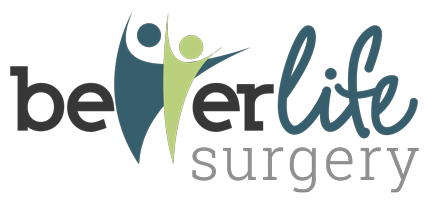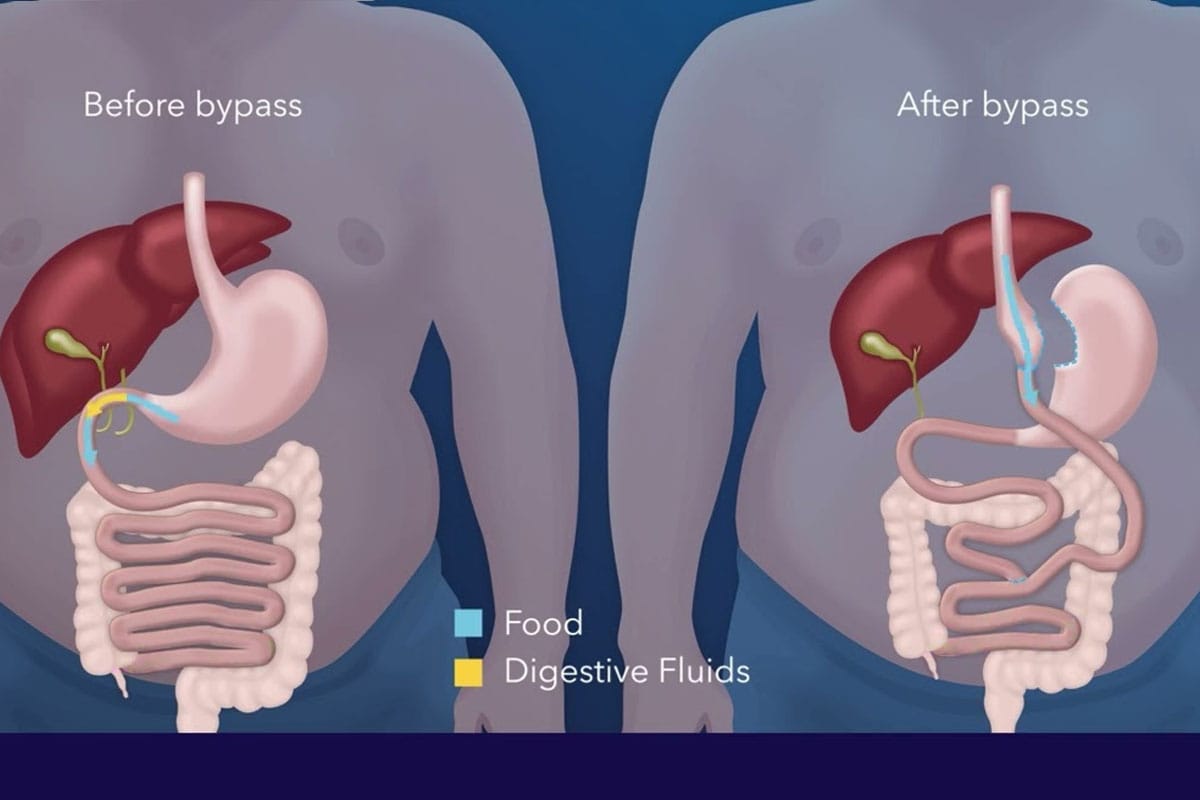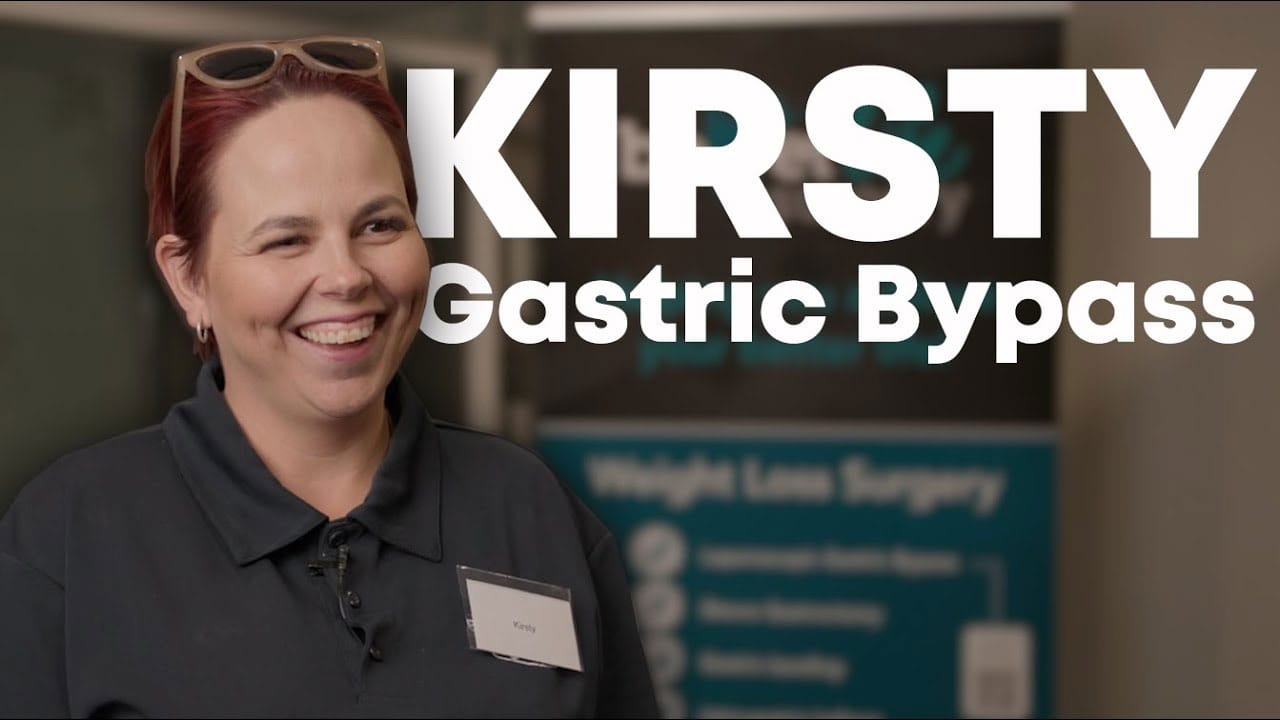Achieve significant, long-term weight loss with gastric bypass in Melbourne, a proven bariatric procedure that alters digestion for better health. Dr Mo Atalla specialises in safe, effective gastric bypass surgery at BetterLife Surgery and provides ongoing support to help you reach your goals.
What is Gastric Bypass Surgery?
Gastric bypass is a bariatric procedure that reduces stomach size and reroutes digestion to support weight loss. Dr Mo Atalla performs this surgery by creating a smaller stomach pouch and connecting it directly to the small intestine, bypassing part of the digestive tract. This limits food intake and reduces calorie absorption, helping patients lose weight. At BetterLife Surgery, we provide expert care and long-term support for your weight loss journey.

*Individual Results May Vary
What are the Benefits of Gastric Bypass?
- Significant and sustained weight loss over time
- Reduction in hunger due to hormonal changes
- Improvement or remission of type 2 diabetes
- Lower risk of obesity-related conditions like heart disease and sleep apnoea
- Enhanced quality of life and mobility
- Faster weight loss compared to some other bariatric procedures
- Long-term improvements in metabolic health
- Effective option for patients with severe obesity or previous failed weight loss attempts
How Does Gastric Bypass in Melbourne Promote Weight Loss?
Gastric bypass in Melbourne promotes weight loss by reducing stomach capacity and altering digestion. During surgery, Dr Mo Atalla creates a smaller stomach pouch and connects it directly to the small intestine, bypassing a portion of the stomach and upper intestines. This means you feel full after eating much smaller portions, reducing overall calorie intake. Additionally, because part of the digestive tract is bypassed, the body absorbs fewer calories and nutrients from food.
Beyond physical restriction, gastric bypass also influences hormones that regulate hunger and metabolism. The procedure decreases levels of ghrelin, the ‘hunger hormone,’ helping to naturally suppress appetite. It also enhances the release of hormones like GLP-1, which improves insulin function and blood sugar control. These changes not only promote weight loss but can also lead to remission of type 2 diabetes and improvements in overall metabolic health.
How Much Weight Can I Lose With Gastric Bypass?
With gastric bypass, you can expect to lose a significant amount of weight, typically around 60–80% of your excess weight within the first 12–18 months. Your results will depend on your diet, lifestyle changes, and commitment to follow-up care. Dr Mo Atalla and the team at BetterLife Surgery provide ongoing support to help you achieve and maintain your desired weight.
Who Is a Candidate for Gastric Bypass Surgery?
Gastric bypass may be suitable for individuals who are significantly overweight and haven’t had success with diet, exercise, or non-surgical treatments. It’s typically recommended for those with:
-
A BMI of 40 or higher, or
-
A BMI of 35 or higher with health conditions like type 2 diabetes, high blood pressure, or sleep apnoea.
You may also be a candidate if excess weight is affecting your quality of life or daily function. At BetterLife Surgery, we assess each person individually to determine if gastric bypass is the right option for achieving long-term health and wellbeing.
Potential Side Effects or Risks:
- Nausea or vomiting, especially in the early recovery phase
- Dumping syndrome, causing dizziness, nausea, and diarrhoea after high-sugar meals
- Changes in bowel habits, including diarrhoea or constipation
- Temporary hair thinning due to rapid weight loss
- Nutrient deficiencies requiring lifelong vitamin supplementation
- Reduced tolerance to certain foods, particularly high-fat or high-sugar items
- Occasional acid reflux or indigestion
- Fatigue as the body adjusts to lower calorie intake
- Risk of gallstones due to rapid weight loss
Life After Gastric Bypass: What You Can Expect
After gastric bypass in Melbourne, you’ll need to adjust to smaller portion sizes and a new way of eating. In the early months, your diet will progress from liquids to soft foods before returning to regular meals. You may notice changes in taste preferences and food tolerance. Regular exercise and lifelong vitamin supplements will be essential for maintaining good health. With ongoing support from Dr Mo Atalla and the BetterLife Surgery team, you can develop healthier habits, improve your wellbeing, and achieve sustainable weight loss over time.
Gastric Bypass FAQs
How Long Does It Take To Recover From Gastric Bypass?
Most patients stay in the hospital for 1–2 nights and can return to light activities within one to two weeks. Full recovery, including a return to strenuous activities, usually takes about six weeks. The BetterLife Surgery team will guide you through each stage of recovery.
Will I Need to Follow a Special Diet After Surgery?
Yes, your diet will progress in stages. Initially, you’ll follow a liquid diet before gradually reintroducing soft and solid foods. You’ll need to focus on high-protein, nutrient-dense meals while avoiding sugary and high-fat foods. Lifelong dietary changes are essential for maintaining weight loss and overall health.
Will I Need to Take Supplements After Gastric Bypass?
Yes, because gastric bypass alters digestion and reduces nutrient absorption, you’ll need lifelong vitamin and mineral supplements, such as multivitamins, calcium, vitamin B12, iron, and vitamin D. Regular blood tests will help monitor your nutrient levels over time.
What Are the Risks of Gastric Bypass Surgery?
As with any surgery, gastric bypass carries some risks, including infection, bleeding, and reactions to anaesthesia. Specific risks include nutrient deficiencies, dumping syndrome, and, in rare cases, complications like bowel obstruction or ulcers. Dr Mo Atalla will discuss these risks in detail and provide guidance on minimising them.
Can Gastric Bypass Help With Type 2 Diabetes?
Many patients experience significant improvements in type 2 diabetes after gastric bypass, with some achieving remission. The procedure alters gut hormones, improving insulin sensitivity and blood sugar control. However, results vary, and long-term follow-up is crucial.
Will I Regain Weight After Gastric Bypass?
While gastric bypass helps with long-term weight loss, some weight regain is possible if healthy habits aren’t maintained. Regular follow-ups with Dr Mo Atalla, a balanced diet, and consistent physical activity can help you sustain your results.
Is Gastric Bypass Reversible?
Gastric bypass is generally considered a permanent procedure. While reversal is possible in rare cases, it carries significant risks. If complications arise, revision surgery may be an option, but it’s best to view gastric bypass as a lifelong commitment.

Why Choose Dr Mo Atalla in Melbourne?
Dr Mo Atalla is a highly experienced bariatric surgeon, accredited by the Royal Australasian College of Surgeons (FRACS) and a member of ANZMOSS, IFSO, and the Australian Medical Association (AMA). He specialises in gastric bypass surgery in Melbourne and helps patients achieve weight loss and improve their overall health. With expert surgical care and ongoing support, you can gain control of your weight and enhance your quality of life. Take the first step—schedule a consultation with Dr Mo Atalla at BetterLife Surgery today.




